- Home
- Laurell K. Hamilton
Nightshade Page 6
Nightshade Read online
Page 6
A long gash had been stitched over his forehead. Surely this wasn’t the best the Orianian’s medical technology could do? If a doctor could rebuild a baby’s deformed face, Troi thought, surely they could heal bruises and wounds better than this.
Talanne stood to one side of the chair. Bodyguards stood to attention on either side. The two guards that had escorted the Federation party inside the room moved to stand just in front of the general. A last guard stood near one wall, closer to Talanne than to anyone else.
Breck and another Orianian guard that had been assigned to the Federation party took up posts on either side of Picard. Worf protected his back, but . . .
“Captain,” Worf said, he leaned into Picard as if to whisper, but the Klingon’s deep voice was not meant for whispering. “They have one more guard than you do. It is a deliberate insult.”
Picard nodded. “I am aware of that particular Orianian custom, Lieutenant Worf.”
General Basha waved a hand. “Cratin, go.” He spoke carefully out of the left side of his mouth, trying very hard not to disturb his bruises.
“General Basha, I assure you,” Picard said, “it is not necessary.”
The general did not repeat his order. He merely glared at the guard. The look on that once beautiful face was frightening.
Troi could feel the weight of Basha’s personality. It was a strange phenomenon that she had felt around some races, humans included. The truly great leaders had an almost psychic force to them.
The guard did not hesitate. He bowed very low and left the room without a word of protest.
“There, Captain, is that . . . satisfactory?” Basha said. He had to swallow between words. His pain was evident, but it was nothing like yesterday.
“Very,” Picard said.
Troi realized it wasn’t General Basha’s physical pain that had hit her so hard the day before, but the general’s rage. Today he was calm. The anger was still there bubbling and hidden, but Basha was in control today. How unusual was it to catch General Basha so totally out of control? Very, if what Troi was sensing was correct. So why would such a steady man show himself to the Federation ambassador bloody and panicked? The panic and rage had been real, but there had been no effort to control them. The man sitting before them now was a man of iron will and nerves of ice. Why had he lost control yesterday? Troi would bring her findings to the captain later in private. For now, she watched and tried to learn more.
Talanne touched Basha’s shoulder. There was quiet tenderness in that touch. It was like being allowed a glimpse into something very private. He started to nod but stopped in mid-motion. It hurt. “As you can see, Captain Picard, my husband is in some pain. If it is acceptable, I will do much of the talking for now.”
“Of course,” Picard said.
“There is a reception planned for this afternoon. The Venturi faction will be represented there.”
“What of the Green party?” Picard asked.
General Basha’s anger flared through him like a hot wind, but his face never betrayed it. He spoke carefully, each word an effort. “The Greens have no part in our government.”
“They are a part of your people, General Basha. Can any peace last if all the people are not represented?” Picard said.
“The Greens will not be a part of this peace,” Basha said.
“They wish to bring biotechnology to the bargaining table, General. They have a way to clean this planet’s water. Surely that is a valuable bargaining chip.”
“NO!” The anger in that one word was enough to scald.
“Basha,” Talanne said, “if they can truly make the water pure again . . .”
“No.”
“General Basha, you came to the Federation for peace. You and the other leaders realized that war was killing not just the warriors, but the planet.” Picard stepped forward, Worf moved with him to flank him. Basha’s guards moved forward as well.
“I will be all right, Lieutenant. Thank you for your concern.”
Worf started to protest, but Picard shot him a hard look. The captain had the ability to say much with a glance Troi noted. Worf stepped back in place.
“General Basha, Colonel Talanne, we have seen the nurseries. We have seen the lifeless children that are not lifeless at all.”
Talanne stiffened, clutching her husband’s shoulder. He winced at the strength of her grip. His own face remained impassive, guarded.
“That is a forbidden area, Captain. You had no right to be there,” Basha said. He stared at the remaining guard that had accompanied them inside.
“Tell me.”
The guard went down on one knee, much as he had to the doctor. “General Basha, Colonel Talanne gave orders that the Federation ambassador was to have access to all areas.”
“Is this true, Talanne?”
“Yes.” Her voice was very soft as she said it.
“Very well, you have seen our greatest shame. It makes no difference.”
“If the Greens’ biotechnology can clean your water of the poisons, then perhaps they can clean the air. It is your planet that is killing your children. Even if the war stops today, the planet will not recover overnight. It will take decades. Would you turn down anything that would speed that process?”
“I will not deal with the Greens,” Basha said.
“Why not?” Picard asked.
“They deal with demons,” Basha said.
Picard just blinked at him, his uncertainty wriggling along Troi’s skin. She herself didn’t know what to make of this new information.
“They deal with demons?” Picard asked. His voice was careful to make no insult of the question.
“Everyone knows that they do unholy things. They twist the very stuff of life, deforming our babies, while theirs grow healthy!”
His hatred was like some ugly black thing inside Troi’s head. It crawled over Troi’s skin and filled her with revulsion. It was rare, but sometimes a person’s hate was so strong that it was almost physically repulsive.
“I found the Green’s representative to be intelligent and thoughtful. A man of science, not superstition.”
“Then how do you explain their children being healthy while ours die?” Basha asked.
“I have no answer for that, General, but I have spoken with the Greens, and I believe they can help this planet.”
“I have given my answer, Captain Picard.” His voice was low and rage-filled, each word carefully bitten off.
“You would turn to off-world strangers for help, but refuse aid from your own people?” Picard asked.
“The Greens are not my people. I am Torlick. They are my people.”
Picard shook his head. “If that is what you truly believe, General, then there will be no peace.”
Basha frowned, winced. “What are you talking about?”
“As long as you see yourselves as separate people, you cannot work together. You must put aside old hatreds and work as one people, not fractured groups.”
“I do not understand,” Basha said.
Again, Troi knew he was lying, but it was a lie of politeness. His rage was like a great hovering warmth in the room, ready to swoop down on the captain.
“We are Torlick, they are Venturi. We are not the same people.”
“Except for the colors of your cloaks you are the same people. Your language, most of your customs, your physical appearance is the same. What is it that makes you two separate factions?”
The general struggled to stand, pushing himself upward with his one good arm. “How dare you pass such judgments on us. We are two separate people. We want peace. We do not want to embrace our enemies.” Basha’s anger had found a focus, and it broke against the captain like heat-lightning. Picard seemed not to notice. Troi felt scorched just standing nearby.
“I do not ask that you embrace your enemies, General Basha, but you must know that you cannot have peace in the midst of hate.”
“Our hatred of each other has been built over centuries o
f fighting, Captain. Everyone in this room has lost parents, children, brothers, sisters, to the enemy. How can we forgive that, or they forgive us?”
“It is not a matter of forgiveness,” Picard said. “It is a matter of practicality. Your world is dying because all your technology has gone into causing death instead of preserving life. If you do not stop now, it will be too late. I ask you, General, is winning the war worth killing all the people on this planet?”
Picard took a step forward. The guards moved in on either side to eye each other suspiciously. “Is winning a war worth the death of not just the children in the nurseries, but all the children? We have met your son, Jeric. He is a bright, strong child. Would you trade his life for your hatred?”
“He is right.” Talanne’s voice was soft, but clear.
Basha turned to look at her, but the movement was too quick and he nearly groaned aloud with pain. Talanne moved toward him, as if to help him. He stared her into immobility. “So you speak against me.”
“No, husband, I speak for our child and for myself. The fighting must end or all will be lost. Everything. Jeric looks at the wall hangings and asks what a tree is, or a flower. He doesn’t believe me when I tell him the pictures of dozens of children playing together is true, not a made-up story. Our son doesn’t believe that that many healthy children could exist.”
Talanne stepped toward her husband, fingers touching his bruised cheek ever so gently. “Husband, we must make peace, and it must last.”
Basha’s face softened. His love for his wife flared like a comforting flame inside of Troi’s head. Something inside of him let go, released some old hatred. The anger faded, replaced by an emotion Troi was beginning to closely associate with the Orianians—sorrow. “What would you have me do, wife of mine?”
Talanne smiled and stepped back. “Listen to the Federation ambassador, and invite the Greens to the peace talks.”
“NO.”
“Basha, remember the stories your grandmother told us about swimming in water outside under the skies. Water so pure you could swim in it, and catch animals out of it, and eat them. Jeric, or his children could go swimming under the sky.”
“You do not know that their technology will work,” Basha said.
“And you do not know that it won’t,” she said.
He stared at her for a moment or two, then turned back to Picard. “It seems you have an advocate among my own people. An advocate I happen to trust. Very well, the Greens may send three representatives to the banquet this afternoon.”
“Thank you, General Basha,” Picard said.
He almost smiled. “Do not thank me.” He half-fell into his chair. Talanne rushed forward to help steady him.
“My husband is tired,” Talanne said.
“When our ship returns to orbit, we will be happy to give medical assistance,” Picard said.
“It won’t be necessary, Captain,” Talanne said. “It is our custom to save serious healing for the children and life-threatening injuries. Pain is to be endured by a warrior without complaint, but we need our general strong and well for the peace talks. He will be healed in time for the afternoon banquet.”
Picard nodded. “I am relieved to hear it, Colonel Talanne.”
“Now please go and let us tend him.”
“Of course.” Picard turned to leave. All the guards pivoted on him, taking up their posts. His flash of irritation was very clear to Troi. “I hope these peace talks go quickly,” he whispered to Troi, “I don’t know how much longer I can stand to be the center of so much attention.”
Troi smiled. “They are only doing their duty, Captain.”
“I suppose so,” he said, but he frowned at Worf’s broad back. Picard was having to take smaller steps than normal to keep from treading on the Klingon’s heels. Worf was being very cautious.
Troi hoped Captain Picard was right and that the precautions were excessive. The image of General Basha’s battered face flashed across her mind. Troi suppressed a shiver. Perhaps Worf was being too cautious, but then again, perhaps not.
Chapter Six
PICARD LOOKED AROUND the nearly packed room. Lieutenant Worf and Breck were practically glued to his sides. The two other Orianian guards were nearly as attentive. It was . . . embarrassing. Worse, even, than having Riker fuss over him. Only Counselor Troi seemed at ease, but it wasn’t often that Picard could detect anything but peace in her delicate features.
The banquet room wasn’t much bigger than their sleeping quarters had been. Breck had explained, “Smaller rooms are easier to defend.”
All the Orianians wore simple jump-suits in the respective colors of their groups. The Torlick in black with sparkling gold braid. The Venturi in crimson with white blocks of color in sleeves and leg. The Greens wore unadorned blue. There was no insignia to mark rank. This was to minimize the chance of assassination. An assassin simply had to know his victims on sight. Unless of course, he just waited and watched the bodyguards. Their concern and watchfulness was obvious. It made hiding rank insignia worthless. Perhaps it was an old custom that predated the bodyguards?
Audun made up one of the three Green representatives. He had been eloquent last night. Picard had not needed Troi’s empathy to see the emotions skate across the man’s face. Audun was a man dedicated, not just to the salvation of the Greens, but of all the Orianians. He was the first leader that Picard had met who didn’t consider this an “us or them” problem. Audun wanted a united people, because only then could the planet be healed. It was the attitude that Picard was determined to foster in the Torlicks and Venturies. He hoped that the Greens’ forgiving attitude would be an example to the rest.
Audun smiled and moved as close to the captain as the guards would allow.
“Oh, for goodness sake,” Picard said. “Give me room to breath, Lieutenant.”
“Captain, I . . .”
“That is an order.”
Worf gave a very curt nod, then stepped back. The other guards did as well, having been convinced earlier that the Klingon was in charge.
Picard smiled at Audun. “I enjoyed our talk last night.”
“As did I, Captain. May I introduce my fellow Greens? Marit and Liv.” Marit was a short woman with nearly solid brown hair. Liv was tall and slender and almost white-blond. The women smiled and nodded.
“We are very grateful to you, Captain, for allowing us an opportunity to participate in these peace talks,” Liv said.
“It is I who am honored. Your work in biotechnology rivals the Federation’s.”
Liv blushed, bowing her head.
“She is not accustomed to strangers,” Audun said. “We have learned to keep to ourselves. It is safer.”
“Was there trouble?” Picard asked.
“None, but until today we were members of a dangerous subversive organization. Traitors. In time of war, traitors may be shot on sight.” He smiled as he said it, to take the sting out of the words but . . .
“You were hunted like animals?” Troi asked.
“Sometimes, Healer, sometimes,” Audun said.
A gong sounded in clear, ringing tones. Everyone in the room turned to see General Basha standing in front of a long table. It was laden with food.
General Alick, head of the Venturi faction, stood just out of reach, behind the table, as well. He was wider through the shoulders and waist than Basha—the closest Picard had seen any of the Orianians come to being fat. But it was hard fat, muscle disguised under bulk. Picard would have guessed that many enemies had judged by outward appearances and been outwitted and out maneuvered by the slow, bulky-looking general.
“Welcome all,” General Basha said.
“To this place of peace,” General Alick said.
“Eat and drink without fear,” Basha said.
“We stand on neutral ground,” Alick said.
“And it is against our most sacred laws to defile neutral ground,” Basha finished.
It had taken Picard nearly three hours to arrive
at the compromise they had just heard. Both Alick and Basha had been determined to have the “honor” of opening the peace talks.
All the food on the table was bite-sized or slightly bigger. There were no plates. Napkins were to be used strictly for dabbing at hands and mouth. They were not to be used as plates. Plates allowed the sprinkling of poison. If you picked up one item of food at a time and ate it right away, no one could tamper with it.
As the food was laid out indiscriminately and no one had any idea who would be eating what, it was safe, except from random tampering. And the Orianians did not believe in random assassination. That was considered rude.
Lieutenant Worf had said, “I am glad to see the Orianian assassins have some honor.”
Picard hadn’t been sure if the Klingon was serious or being sarcastic. He couldn’t recall ever hearing Worf use sarcasm before.
There was a pile of Styrofoamlike cups. Each guest was to use one cup, then throw it away, again to lessen the chances of poison. Picard stared at the pile of cups and wondered how much energy and failing natural resources had gone into making them. All to be thrown away.
He sighed. One problem at a time. Peace, then the planet’s salvation could begin.
“We have a special honor for the Federation ambassador,” General Basha said.
“The Torlick and the Venturi have worked together on a surprise for the ambassador,” General Alick said.
Picard looked from one to the other, unsure what was about to happen. But that the two warring factions had worked together on anything was a miracle.
Two guards wheeled in a tray with what looked like an old-fashioned urn on it. Basha and Alick took places on either side of the small wheeled cart. The two men spoke in unison like an a capella choir. “Captain Jean-Luc Picard, the Venturi and the Torlick wish you to know we are not entirely uncivilized.”
“We have worked together to secure something that your dossier said you preferred,” Basha said.
“Working together on this small matter,” Alick said, “is perhaps preferable to fighting about it.”

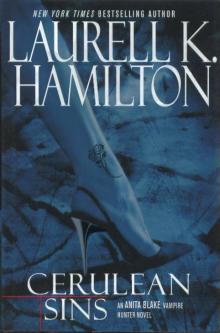 Cerulean Sins
Cerulean Sins Strange Candy
Strange Candy Serpentine
Serpentine Swallowing Darkness
Swallowing Darkness Guilty Pleasures
Guilty Pleasures A Caress of Twilight
A Caress of Twilight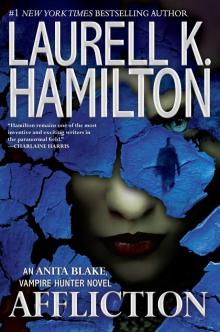 Affliction
Affliction Dead Ice
Dead Ice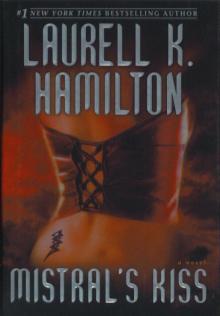 Mistrals Kiss
Mistrals Kiss Dancing
Dancing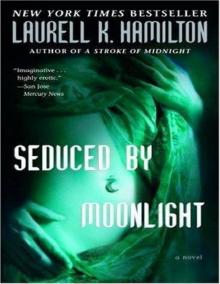 Seduced by Moonlight
Seduced by Moonlight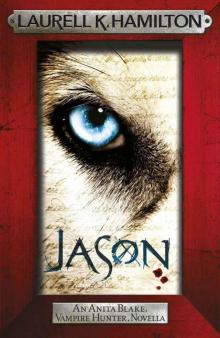 Jason
Jason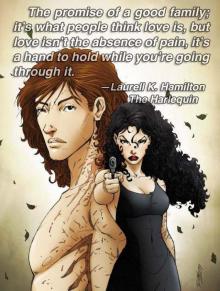 The Harlequin
The Harlequin Burnt Offerings
Burnt Offerings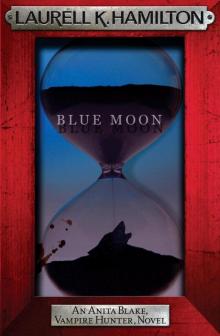 Blue Moon
Blue Moon A Kiss of Shadows
A Kiss of Shadows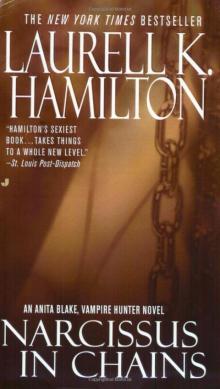 Narcissus in Chains
Narcissus in Chains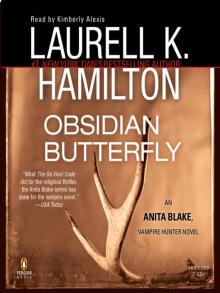 Obsidian Butterfly
Obsidian Butterfly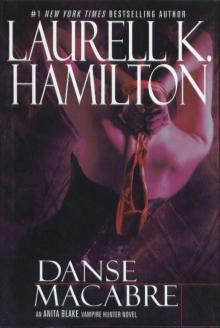 Danse Macabre
Danse Macabre The Laughing Corpse
The Laughing Corpse Never After
Never After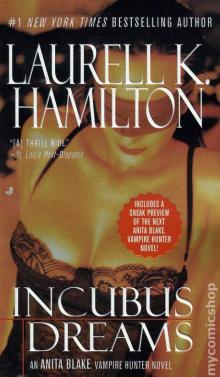 Incubus Dreams
Incubus Dreams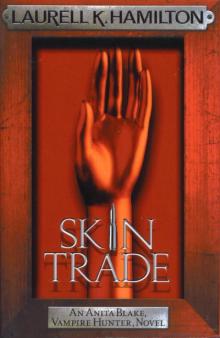 Skin Trade
Skin Trade Circus of the Damned
Circus of the Damned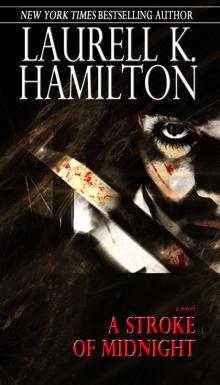 A Stroke of Midnight
A Stroke of Midnight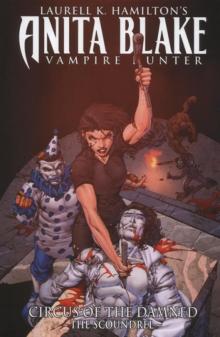 Laurell K. Hamilton's Anita Blake, Vampire Hunter
Laurell K. Hamilton's Anita Blake, Vampire Hunter Hit List
Hit List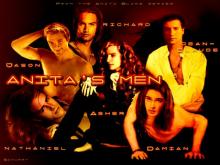 Micah
Micah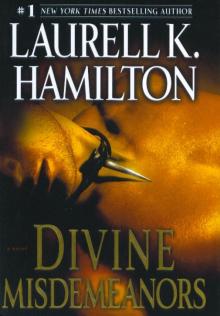 Divine Misdemeanors
Divine Misdemeanors Bloody Bones
Bloody Bones Flirt
Flirt Wounded
Wounded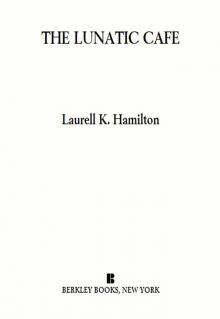 The Lunatic Cafe
The Lunatic Cafe A Shiver of Light
A Shiver of Light Kiss the Dead
Kiss the Dead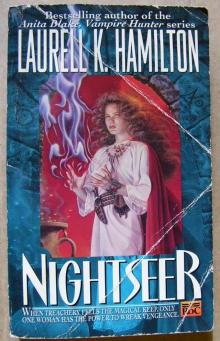 Nightseer
Nightseer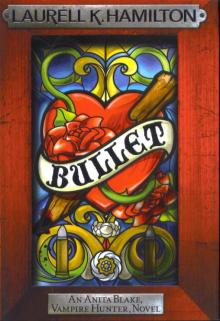 Bullet
Bullet The Killing Dance
The Killing Dance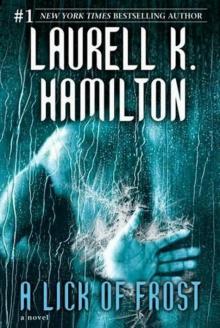 A Lick of Frost
A Lick of Frost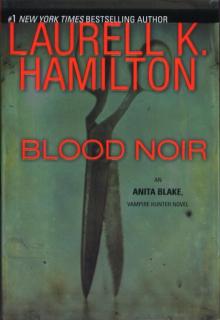 Blood Noir
Blood Noir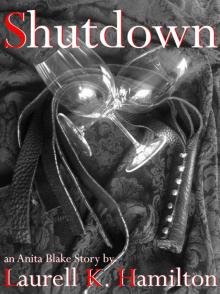 Shutdown
Shutdown Beauty
Beauty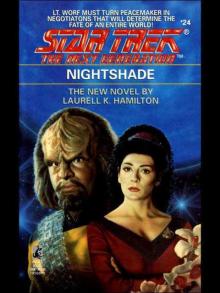 Nightshade
Nightshade Cravings
Cravings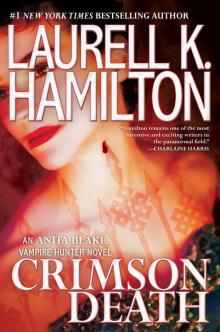 Crimson Death
Crimson Death Bite
Bite Sucker Punch
Sucker Punch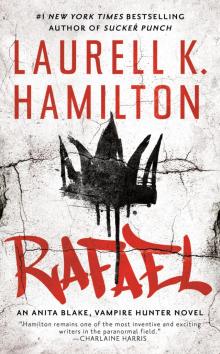 Rafael
Rafael Fantastic Hope
Fantastic Hope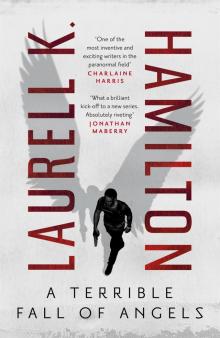 A Terrible Fall of Angels
A Terrible Fall of Angels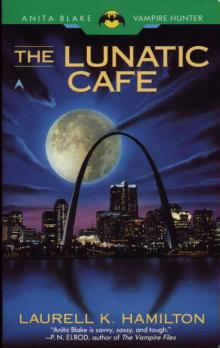 Anita Blake 4 - Lunatic Cafe
Anita Blake 4 - Lunatic Cafe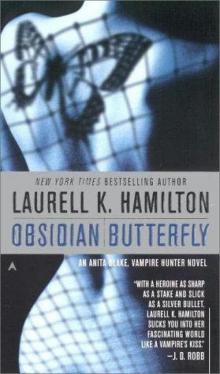 Obsidian Butterfly ab-9
Obsidian Butterfly ab-9 A Kiss of Shadows mg-1
A Kiss of Shadows mg-1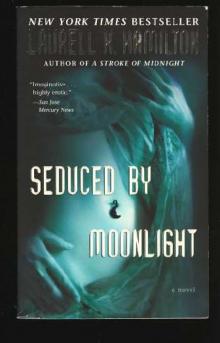 Seduced by Moonlight mg-3
Seduced by Moonlight mg-3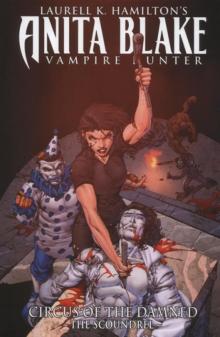 The Scoundrel
The Scoundrel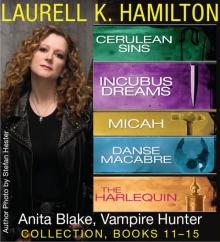 Anita Blake, Vampire Hunter collection 11-15
Anita Blake, Vampire Hunter collection 11-15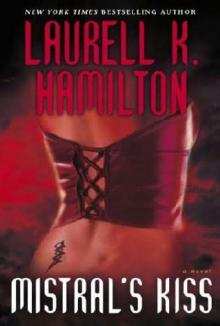 Mistral's Kiss mg-5
Mistral's Kiss mg-5 Incubus Dreams ab-12
Incubus Dreams ab-12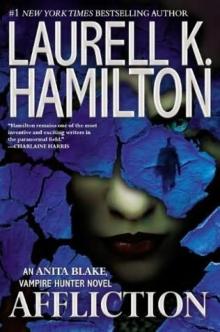 Affliction ab-22
Affliction ab-22![[Anita Blake 17] - Skin Trade Read online](http://i1.bookreadfree.com/i/03/23/anita_blake_17_-_skin_trade_preview.jpg) [Anita Blake 17] - Skin Trade
[Anita Blake 17] - Skin Trade![[Anita Blake 18] - Flirt Read online](http://i1.bookreadfree.com/i/03/22/anita_blake_18_-_flirt_preview.jpg) [Anita Blake 18] - Flirt
[Anita Blake 18] - Flirt Flirt ab-18
Flirt ab-18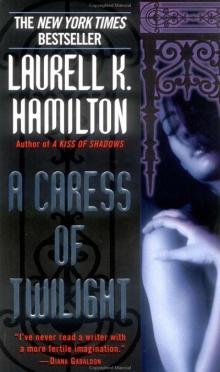 A Caress of Twilight mg-2
A Caress of Twilight mg-2 Danse Macabre ab-14
Danse Macabre ab-14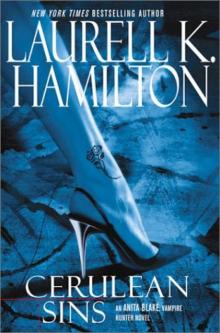 Cerulean Sins ab-11
Cerulean Sins ab-11![[Merry Gentry 05] - Mistral's Kiss Read online](http://i1.bookreadfree.com/i1/03/29/merry_gentry_05_-_mistrals_kiss_preview.jpg) [Merry Gentry 05] - Mistral's Kiss
[Merry Gentry 05] - Mistral's Kiss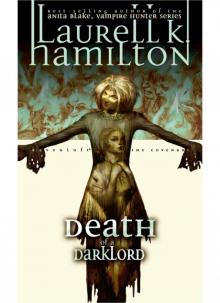 Death of a Darklord
Death of a Darklord ABVH 01 - Guilty Pleasures
ABVH 01 - Guilty Pleasures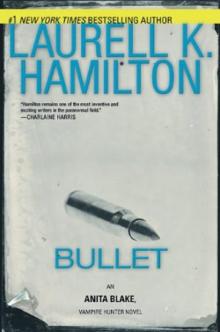 Bullet ab-19
Bullet ab-19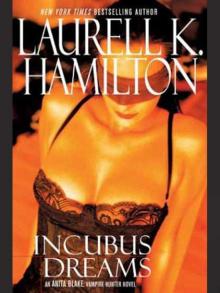 Anita Blake 12 - Incubus Dreams
Anita Blake 12 - Incubus Dreams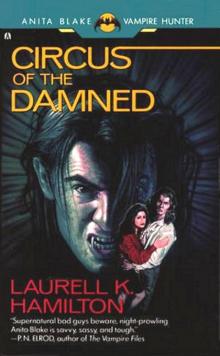 Curcus of the Damned
Curcus of the Damned Dancing (anita blake)
Dancing (anita blake)![[Anita Blake 15] - The Harlequin Read online](http://i1.bookreadfree.com/i1/04/01/anita_blake_15_-_the_harlequin_preview.jpg) [Anita Blake 15] - The Harlequin
[Anita Blake 15] - The Harlequin Meredith Gentry 01 - A Kiss of Shadows
Meredith Gentry 01 - A Kiss of Shadows Death of a Darklord (ravenloft)
Death of a Darklord (ravenloft)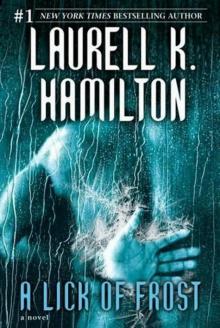 A Lick of Frost mg-6
A Lick of Frost mg-6 The Harlequin ab-15
The Harlequin ab-15![[Merry Gentry 04] - A Stroke of Midnight Read online](http://i1.bookreadfree.com/i2/04/10/merry_gentry_04_-_a_stroke_of_midnight_preview.jpg) [Merry Gentry 04] - A Stroke of Midnight
[Merry Gentry 04] - A Stroke of Midnight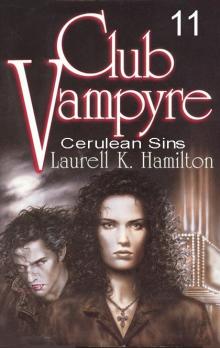 Anita Blake 11 - Cerulean Sins
Anita Blake 11 - Cerulean Sins The Girl Who was Infatuated with Death
The Girl Who was Infatuated with Death Micah ab-13
Micah ab-13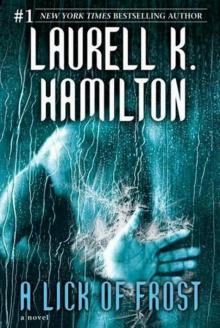 Meredith Gentry 6 - A Lick of Frost
Meredith Gentry 6 - A Lick of Frost 16 Blood Noir ab-16
16 Blood Noir ab-16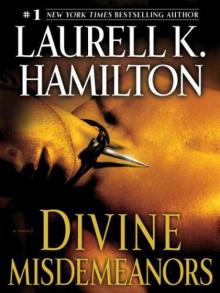 Divine Misdemeanors_A Novel
Divine Misdemeanors_A Novel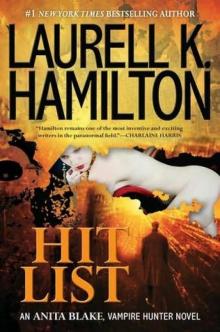 Hit List ab-20
Hit List ab-20![[Anita Blake Collection] - Strange Candy Read online](http://i1.bookreadfree.com/i2/04/12/anita_blake_collection_-_strange_candy_preview.jpg) [Anita Blake Collection] - Strange Candy
[Anita Blake Collection] - Strange Candy Ardeur: 14 Writers on the Anita Blake, Vampire Hunter Series
Ardeur: 14 Writers on the Anita Blake, Vampire Hunter Series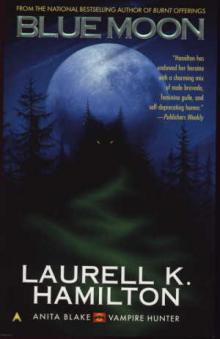 Anita Blake 8 - Blue Moon
Anita Blake 8 - Blue Moon Swallowing Darkness_A Novel
Swallowing Darkness_A Novel